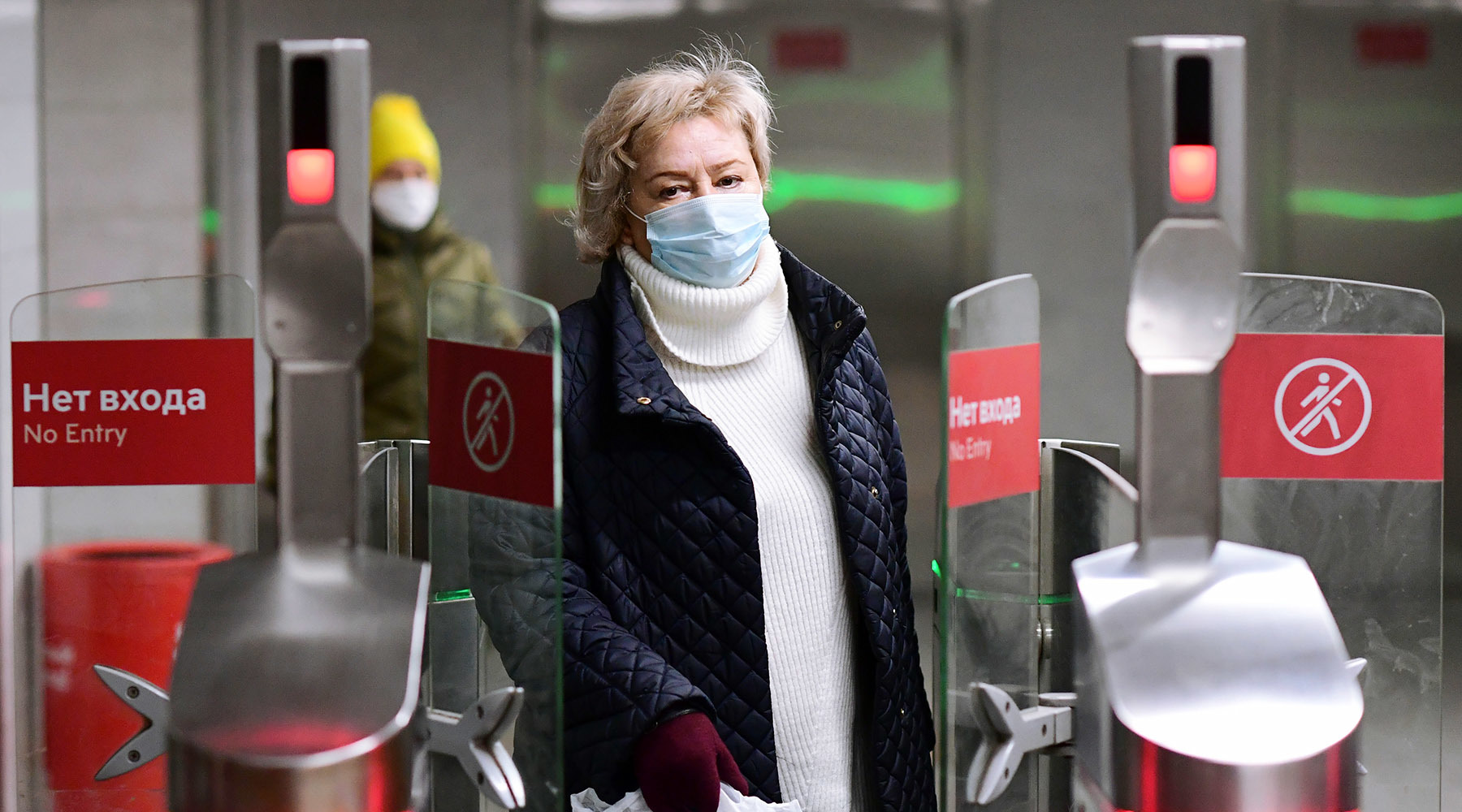In Russia, over the past day, 19,768 new cases of coronavirus infection were detected.
During this time, 15 567 people were cured of the disease, 389 patients died.
Most of the new cases of COVID-19 were recorded in Moscow (5826), St. Petersburg (1031), as well as Moscow (569), Nizhny Novgorod (417) and Arkhangelsk (389) regions.
In the two days preceding this, the coronavirus was detected in 18 648 and 18 257 people.
For all the time in the country, according to the operational headquarters for combating the spread of infection, 1,693,454 cases of coronavirus were recorded, 1,266,931 people recovered, 29,217 died.
At the same time, the lowest rate of increase in COVID-19 per day was noted in Tatarstan and Dagestan and amounted to 0.5%.
According to the headquarters, 1,453 patients with coronavirus were hospitalized in Moscow per day.
There are 367 people on ventilators.
Alexander Gorelov, deputy director for scientific work of the Central Research Institute of Epidemiology of Rospotrebnadzor, explained in which case it would be possible to talk about the stabilization of the situation with COVID-19 in Russia.
According to him, two parameters must be taken into account.
“It will be possible to say that the stabilization stage has begun when the daily indicators are stable for eight days and the spread index will not be higher than one,” Gorelov confirmed.
He clarified that before this period, minor fluctuations in daily incidence rates may still be recorded.
Gorelov also expressed the opinion that the daily increase in the number of COVID-19 cases in Russia by the spring may decrease to the values of the summer of 2020.
“We expect that by the spring the number of new cases of the disease should decrease to the baseline values that were in the summer,” RIA Novosti quoted him as saying.
He clarified that the process of stabilizing the situation will take some time, and its duration depends on the observance of precautions.
RIA News
© Alexey Maishev
In addition, the Rospotrebnadzor reported that they continue to examine environmental objects for the SARS-CoV-2 virus.
"There were no positive findings of a new coronavirus infection in food," the agency said in a statement.
At the same time, it is noted that "samples of coronavirus were found only in washes from the surfaces of environmental objects."
The ministry said that "in total, more than 220 thousand studies of washes from environmental objects were carried out for the presence of a new coronavirus infection in them."
"Of these, 322 positive studies of samples of washes from the surfaces of environmental objects were identified in medical organizations, at trade and transport facilities, which is 0.15% of the total number of samples examined," Rospotrebnadzor added.
State Duma deputy, former chief sanitary doctor of Russia Gennady Onishchenko, commenting on the situation with the incidence, urged Russians to avoid places where you can "quietly" catch the coronavirus.
In particular, he recommended using stairs rather than elevators if the number of storeys in the building allows, and also advised to observe safety measures on escalators, in train cars and in the kitchens of communal apartments.
“With a dense metro congestion, the chances of getting infected are very high, so you always need to wear a mask”, - quotes him as “Evening Moscow”.
Meanwhile, the Main Control Directorate of the capital noted that the majority of Muscovites are responsible for their health and the health of those around them and follow the established requirements in a disciplined manner.
At the same time, cases of violations are still recorded in the city.
“Since the beginning of autumn, more than 80.5 thousand cases of non-use of personal protective equipment by citizens have been identified, of which more than 19.5 thousand violations were recorded in shops, shopping and entertainment centers.
The rest of the violations - mainly in public transport, ”- said in the Glavkontrol.
Russian regions also continue to make decisions on toughening restrictive measures based on the epidemiological situation.
On November 3, the authorities of the Samara region announced the introduction of a mandatory self-isolation regime for people over 65 and those with chronic diseases.
This decision was made by the regional headquarters to combat COVID-19.
It was decided to transfer high school students of the region's schools from November 9 to distance learning, the press service of the regional government said.
According to the World Health Organization, the total number of COVID-19 cases in the world increased by 3.36 million in a week.

